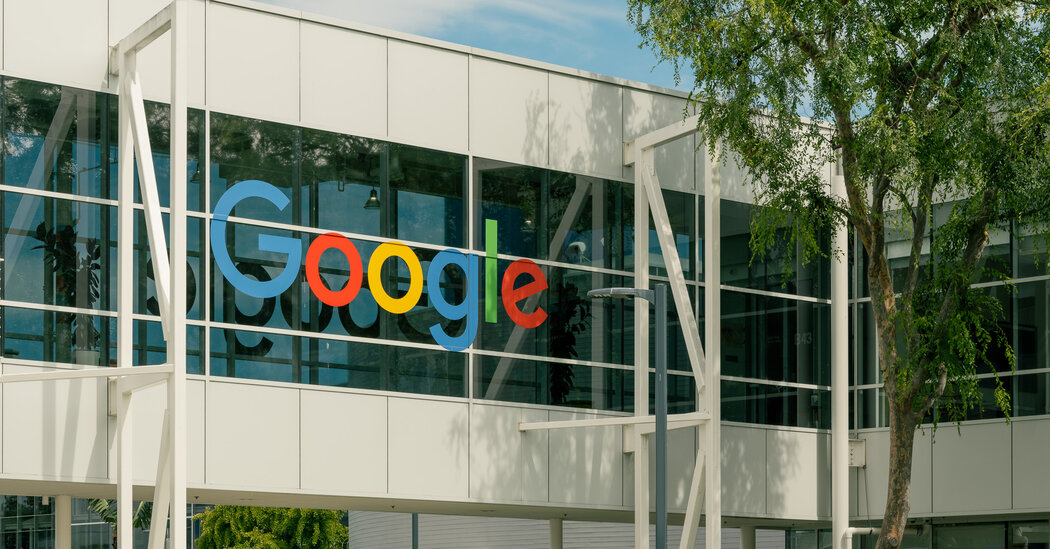After Google fended off major changes to its lucrative search business in September, it has been free to return to business as usual, and business has been good.
Alphabet, Google’s parent company, reported $102.35 billion in sales for the third quarter, up 16 percent from a year earlier, as people continued to take queries to Google Search despite the rise of alternatives like ChatGPT and Perplexity. The company posted a profit of just under $35 billion, a $21 billion increase from three years ago when the artificial intelligence race began.
The results exceeded Wall Street’s expectations for sales of $99.81 billion and a profit of $27.63 billion. Alphabet shares rose more than 5 percent in after-hours trading.
The results show that the tech giant continues to dominate the online search business, which a judge found to be a monopoly early this year. But the judge, Amit P. Mehta, decided in September that Google did not need to make major changes to address its search monopoly because rapid advances in A.I. are shaking up the way people search for information.
Judge Mehta’s decision removed a cloud that had hovered over Google’s business since 2020. The company was allowed to keep paying Apple to be the search engine that automatically comes up when someone opens an iPhone browser, a deal that helps Google make billions of dollars in advertising sales.
Sales from Google Search increased nearly 15 percent to $56.57 billion in the quarter. It accounted for more than half of the company’s total revenue, which eclipsed $100 billion in a quarter for the first time.
“The search business isn’t in jeopardy like many people thought, because they’re still a place where product searches start,” said Ben Bajarin, principal analyst at Creative Strategies, a tech research firm. At the same time, he said, the growth in artificial intelligence is driving the company’s cloud-computing business. “They’re diversified, so they’re making money on A.I. in lots of ways.”
Sundar Pichai, Alphabet’s chief executive, said the company’s product diversification had been driven by its construction of A.I. data centers. Those data centers have helped the company distribute Gemini, its artificial intelligence system, to companies across the economy and make it the backbone of new products like A.I. Mode, a product that allows Google Search to function like a chatbot.
“Our momentum is strong, and we’re shipping at speed,” Mr. Pichai said.
But building new A.I. data centers has weighed on Google’s bottom line. The company is committed to spending more than $91 billion this year on capital expenditures, a $6 billion increase from its previous projections, as it races to keep pace with competitors. But the spending hasn’t dented Google’s profit gains, which increased 33 percent from a year earlier.
Google signaled that its A.I. spending was paying off. Sales at Google Cloud, the division that offers software and technology services to other businesses, increased 34 percent to $15.16 billion. Analysts had estimated $14.77 billion.
The cloud sales will ease investors’ fears that A.I. is in a bubble. Those concerns intensified in recent weeks after OpenAI signed a smattering of deals to buy A.I. chips from AMD and Nvidia, while also exchanging equity in the companies.
Google has also shown that the booming demand for A.I. chips could help it create a new business. Nearly a decade ago, Google created its own A.I. chip called a tensor processing unit, or TPU. It recently said Anthropic, the A.I. start-up, will use one million of its TPUs, worth tens of billions of dollars.
YouTube, Google’s video streaming service, has also found new ways to pull in viewers, including by splurging in September to broadcast its first National Football League game. The efforts paid off in the period with sales for the video platform rising 15 percent to $10.26 billion.
Regulators remain Google’s biggest risk. This month, the company argued in U.S. District Court that a federal judge shouldn’t force it to sell its advertising software, which it was found to have a monopoly over in April. The government argued that the business should be broken up.
The advertising technology, which helps place ads across the web, remains a small part of Google’s revenue, contributing $7.35 billion in the quarter. But the company has previously argued that it bolsters its larger search-advertising business.
Judge Leonie M. Brinkema, who is presiding over the case, suggested that Google consider settling.
Tripp Mickle reports on some of the world’s biggest tech companies, including Nvidia, Google and Apple. He also writes about trends across the tech industry like layoffs and artificial intelligence.
The post Alphabet Revenue Jumps 16% With Strong Cloud Sales appeared first on New York Times.




